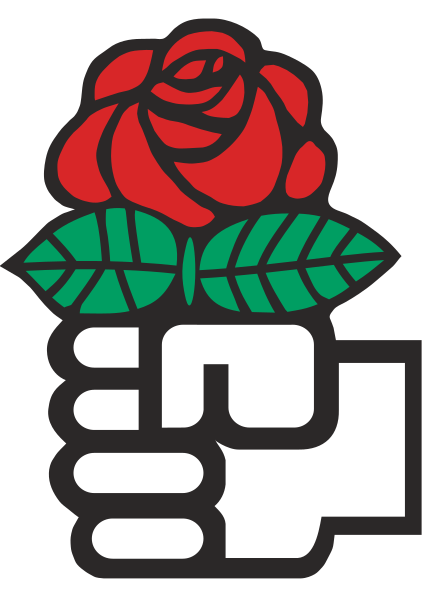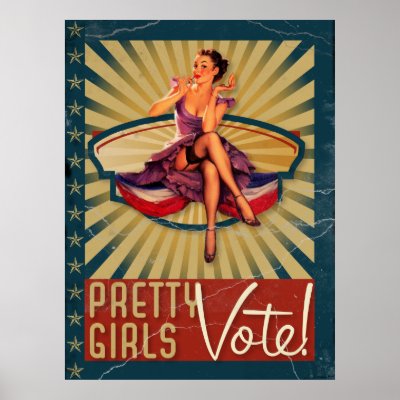
Founded in 1971, “
Libertarians believe the answer to America’s political problems is the same commitment to freedom that earned America its greatness: a free-market economy & the abundance & prosperity it brings; a dedication to civil liberties & personal freedom that the makers this country above all others; and a foreign policy of non-intervention, peace, & free trade as prescribed by America’s founders.”
2008 early registration ballots announced 24.82% of the population registered Libertarians making it the third largest political party in the US.
Their Stance on the Issues:The Economy: "A free and competitive market allocates resources in the most efficient manner. Each person has the right to offer goods and services to others on the free market. The only proper role of government in the economic realm is to protect property rights, adjudicate disputes, and provide a legal framework in which voluntary trade is protected. All efforts by government to redistribute wealth, or to control or manage trade, are improper in a free society."
Civil Liberties: “ The defense of the country requires that we have adequate intelligence to detect & to counter threats to domestic security. This requirement must not take priority over maintaining the civil liberties of our citizens. The Bill of Rights provides no exceptions for a time of war. Intelligence agencies that legitimately seek to preserve the security of the nation must be subject to oversight & transparency.”
Crime & Violence:- Step 1. Protect Victim’s Rights: “Libertarians would do more than just punish criminals. We would also make them pay restitution to their victims for the damage they’ve caused, including property loss, medical costs, pain, & suffering.”
- Step 2. End Prohibition: “Drug prohibition does more to make Americans unsafe than any other factor.”
- Step 3. Get Tough on Real Crime: 'The Libertarian Party is the party of personal responsibility. We believe that anyone who harms another person should be held responsible for that action. By contrast, the Democrats & Republicans have created a system where criminals can get away with almost anything." "For instance: sentences seldom mean what they say. Fewer than one out of every four violent felons serves more than four years. Libertarians would dramatically reduce the number of these early releases by elimination their root cause - prison over-crowding."'Since nearly six out of every ten federal prison inmates are there for non-violent drug-related offenses, it’s clear that drug prohibition is the primary source of this over-crowding."
- Step 4. Protect the Right to Self-Defense: “We believe that the private ownership of firearms is part of the solution to America’s crime epidemic, not part of the problem.”
- Step 5. Address the Root Causes of Crime: “The Libertarian Party would increase employment opportunities by slashing taxes & government red tape. We would also end the welfare system with its culture of dependence & hopelessness. Most important of all, we would promote low-cost private alternatives to the failed government school system.”
Environment: “Government, both federal & local, is the greatest single polluter in the U.S. This polluter literally gets away with murder because of sovereign immunity. Libertarians would make government as responsible for its actions as everyone else is expected to be. Libertarians would protect the environment by first abolishing sovereign immunity.”
Foreign Policy: “Foreign aid is little more than welfare for nations -- with the same disastrous effects as domestic welfare programs.” “If Americans truly want to help other countries, they can best do so not through failed foreign aid programs, but by improving the U.S. economy, so that U.S. businesses have funds to invest abroad, and pursuing free trade policies.”
Freedom of Speech: “We defend the rights of individuals to unrestricted freedom of speech, freedom of press & the right of individuals to dissent from government itself.”
Gun Laws: “Law-abiding, responsible citizens do not & should not need to ask anyone’s permission or approval to engage in a peaceful activity. Gun ownership, by itself, harms no other person & cannot morally justify criminal penalties.” “Studies show that where gun ownership is illegal, residential burglaries are higher. A man with a gun in his home is no threat to you if you
aren’t breaking into it.” “Rather than banning guns, the politicians and the police should encourage gun ownership, as well as education and training programs. A responsible, well-armed and trained citizenry is the best protection against domestic crime and the threat of foreign invasion.”
Healthcare: “The Libertarian Party knows the only
healthcare reforms that will make a real difference are those that draw on the strength of the free market. The Libertarian Party will work towards the following: (1) establish medical savings accounts, (2) deregulate the
healthcare industry, and (3) remove barriers to safe,
affordably medicines.”
Immigration: “For those workers already in the United States illegally, we can avoid ‘amnesty’ and still offer a pathway out of the underground economy. Newly legalized workers can be assessed fines & back taxes & serve probation befitting the misdemeanor they’
ve committed. They can be required to take their place at the back of the line should they eventually apply for permanent residency.”
Websites to check out:
Libertarian PartyWikipedia: Libertarian Party
 Well, thank God that is over. I learned a lot but as you could tell, I got a bit distracted for a little while. I mean, hello, I'm buying a house & moving...geeze. Hehe
Well, thank God that is over. I learned a lot but as you could tell, I got a bit distracted for a little while. I mean, hello, I'm buying a house & moving...geeze. Hehe

















